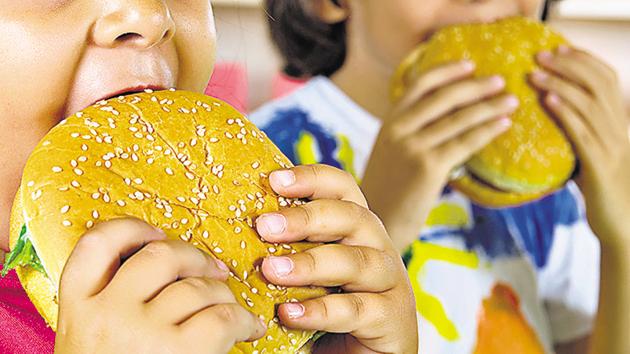The food choices children make today are pivotal in shaping their long-term health, well-being and happiness. It is the collective responsibility of parents and society to guide children toward informed and nutritious food choices. By instilling healthy eating habits early, we set the foundation for a lifetime of better health, energy and vitality.
The role of parents in shaping healthy eating habits
In an interview with HT Lifestyle, Dr Abhishek Chopra, Consultant Neonatologist and Paediatrician at Cloudnine Group of Hospitals in New Delhi’s Punjabi Bagh, shared, “Parents are the primary influence on a child’s food choices. Research shows that children develop a preference for healthy foods when regularly exposed to them. Parents can introduce a variety of fruits, vegetables, whole grains, lean proteins, and healthy fats, ensuring meals are both delicious and nutritious.”
He added, “Being role models is key—children are more likely to imitate healthy eating behaviors when they see their parents practicing them. Involving children in food preparation and explaining the health benefits of various foods can make mealtime enjoyable and educational, reinforcing the importance of healthy eating.”
The power of education and awareness
Dr Abhishek Chopra opined, “Beyond providing healthy food, educating children about nutrition is crucial. Schools play an important role by teaching children how food impacts their energy, concentration, and mood. Programs that introduce kids to where food comes from, such as visits to farms or growing a vegetable garden, encourage informed food choices and increase awareness of nutrition.”

Promoting healthy food in the community
Creating environments that support healthy eating is essential. Dr Abhishek Chopra suggested, “Schools, communities and public health campaigns should offer nutritious food options and promote physical activity. Accessible fresh produce, nutrition programs, and sports activities all contribute to a holistic approach to health and wellness.”
Long-term benefits of healthy choices
Making healthy food choices has lasting benefits. Dr Abhishek Chopra revealed, “Children who eat well-balanced diets are more likely to develop stronger immune systems, better mental health, and lower risks of chronic diseases like obesity, diabetes, and heart disease. Moreover, a healthy diet enhances cognitive function, boosts energy, and improves mood. Incorporating physical activity along with proper nutrition contributes to a healthier, happier life. Active children are more likely to develop healthy habits, leading to reduced stress, improved physical health, and a sense of well-being.”
Key foods for a healthy diet
Children should enjoy a variety of foods from the following groups:
- Fruits
- Vegetables
- Pulses, legumes, beans
- Grains like wheat, maize, barley, rice
- Lean meats, poultry, fish
- Dairy like milk, yogurt, and cheese
Foods like chapati, paratha, rice, poha, oats, and millets release energy slowly, providing long-lasting fuel. Milk, cheese, and curd are excellent sources of protein and calcium. For overweight children, reduced-fat dairy products are recommended.
Foods to avoid
Limit foods high in fat, sugar, or salt, such as:
- Biscuits, pastries, chocolates, and ice cream
- Tinned, packaged, or processed foods with preservatives
- Commercial breakfast cereals
- Caffeinated drinks, including coffee, tea, and energy drinks
Milk and juices
Dr Abhishek Chopra advised, “Breastfeeding should continue for at least two years. Cow’s milk can be introduced at one year, with whole milk recommended between ages 1 and 2 for brain development. After age 2, replace whole milk with low-fat or skimmed milk. Juices should be avoided until after two years due to high sugar content in packaged juices. Whole fruits are a better option as they provide fiber and help prevent constipation.”
Managing fussy eaters
For fussy eaters, Dr Abhishek Chopra recommended, “Parents can introduce one or two new foods per week and involve children in food selection and preparation. Making meals fun by cutting fruits and vegetables into interesting shapes can encourage children to try new foods. Never force a child to eat, as this may have the opposite effect.”

The role of exercise in shaping a healthy life
It is no secret that physical activity enhances academic performance, fitness and overall health. Dr Abhishek Chopra asserted, “Preschoolers (3-5 years) should engage in 3 hours of active play daily, while children aged 6-17 should get at least 60 minutes of physical activity each day. Exercise, combined with proper nutrition, promotes lifelong health and well-being. By encouraging healthy food choices and regular physical activity, we help children build the foundation for a bright, healthy future.”
Disclaimer: This article is for informational purposes only and not a substitute for professional medical advice. Always seek the advice of your doctor with any questions about a medical condition.

